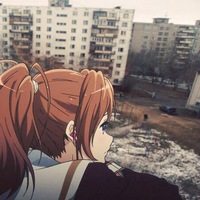
Які з цих фактів характеризують політичний режим Спарти як олігархічний, недемократичний? (Надо
выбрать 5 ответов) 1. Герусія, рада старійшин, складалася з 30 осіб 2. Старійшини-геронти могли розпустити народні збори 3. Дітей привчали висловлюватися коротко і влучно 4. Виховання дітей та повсякденне життя спартіатів контролювала держава 5. Народні збори не вносили своїх пропозицій герусії, раді старійшин 6. Народні збори лише схвалювали чи відхиляли пропозиції старійшин-геронтів 7. Спартанські дівчата займалися спортом 8. Спартіатам заборонялося виїздити за межі поліса 0
0
 0
0
Ответы на вопрос
 Внимание! Ответы на вопросы дают живые люди. Они могут содержать ошибочную информацию, заблуждения, а также ответы могут быть сгенерированы нейросетями. Будьте внимательны. Если вы уверены, что ответ неверный, нажмите кнопку "Пожаловаться" под ответом.
Внимание! Ответы на вопросы дают живые люди. Они могут содержать ошибочную информацию, заблуждения, а также ответы могут быть сгенерированы нейросетями. Будьте внимательны. Если вы уверены, что ответ неверный, нажмите кнопку "Пожаловаться" под ответом.

Ответ:
из:4
2
6
8
3
пж если не сложно сделай лучшим ответом
 0
0
 0
0

The Oligarchic and Non-Democratic Nature of the Spartan Political Regime
The political regime of Sparta can be characterized as oligarchic and non-democratic based on the following facts:
1. Gerousia, the Council of Elders, consisted of 30 members: The Gerousia was a council of older Spartan men who held significant power and influence in the political decision-making process [[1]].
2. The Gerontes (Elders) had the authority to dissolve the popular assembly: The Gerontes had the power to dissolve the popular assembly, known as the Apella, which limited the democratic participation of the Spartan citizens [[2]].
3. Children were taught to express themselves concisely and accurately: Spartan children were trained to communicate in a straightforward and concise manner, which suggests a focus on obedience and conformity rather than fostering critical thinking and open debate [[3]].
4. The state controlled the upbringing of children and everyday life of Spartiates: The Spartan state had significant control over the education and daily lives of its citizens, including the Spartiates. This level of control indicates a centralized authority and limited individual freedoms [[4]].
5. The popular assembly did not propose its own legislation to the Gerousia: The Apella, the popular assembly of Spartan citizens, did not have the power to propose legislation to the Gerousia. Instead, it primarily served as a body to approve or reject proposals put forth by the Gerontes [[5]].
These facts highlight the concentration of power in the hands of a select few, the limited democratic participation of the Spartan citizens, and the control exerted by the state over various aspects of Spartan life. These characteristics align with an oligarchic and non-democratic political regime.
Please let me know if you found this information helpful or if you have any further questions!
 0
0
 0
0

The Oligarchic and Non-Democratic Nature of the Spartan Political Regime
The political regime of Sparta can be characterized as oligarchic and non-democratic due to the following facts:
1. Gerousia, the Council of Elders, consisted of 30 members. The Gerousia was composed of elderly Spartan men who held significant power and influence in the state. They were responsible for making important decisions and shaping Spartan policy [[1]].
2. The Gerontes, or elder statesmen, had the power to dissolve the popular assembly. This meant that they could effectively control the decisions made by the assembly and limit the influence of the common citizens [[2]].
3. Children were taught to express themselves concisely and accurately. Spartan education focused on brevity and precision in speech, discouraging lengthy discussions and debates. This limited the ability of the citizens to engage in meaningful political discourse and express their opinions fully [[3]].
4. The upbringing of children and daily life of Spartans were controlled by the state. The state had a strong influence on the education and daily activities of its citizens, ensuring conformity and loyalty to the Spartan regime. This centralized control restricted individual freedoms and autonomy [[4]].
5. The popular assembly had no power to propose legislation to the Gerousia. The Gerousia held the authority to propose and enact laws, while the popular assembly could only approve or reject these proposals. This limited the ability of the citizens to actively participate in the legislative process [[5]].
6. The popular assembly only had the power to approve or reject proposals put forth by the Gerontes. The assembly did not have the authority to initiate legislation or propose new ideas. Their role was limited to accepting or rejecting the decisions made by the Council of Elders [[6]].
These facts demonstrate the oligarchic and non-democratic nature of the Spartan political regime. Power was concentrated in the hands of a select few, with limited opportunities for citizen participation and decision-making.
Please let me know if you need further clarification or have any other questions!
 0
0
 0
0
Похожие вопросы

Топ вопросов за вчера в категории История
Последние заданные вопросы в категории История
-
Математика
-
Литература
-
Алгебра
-
Русский язык
-
Геометрия
-
Английский язык
-
Химия
-
Физика
-
Биология
-
Другие предметы
-
История
-
Обществознание
-
Окружающий мир
-
География
-
Українська мова
-
Информатика
-
Українська література
-
Қазақ тiлi
-
Экономика
-
Музыка
-
Право
-
Беларуская мова
-
Французский язык
-
Немецкий язык
-
МХК
-
ОБЖ
-
Психология
-
Физкультура и спорт
-
Астрономия
-
Кыргыз тили
-
Оʻzbek tili





















